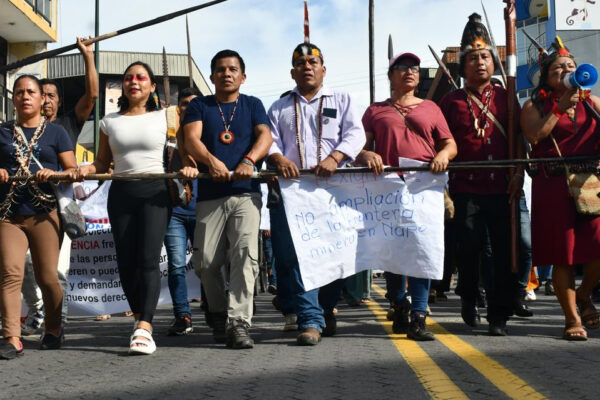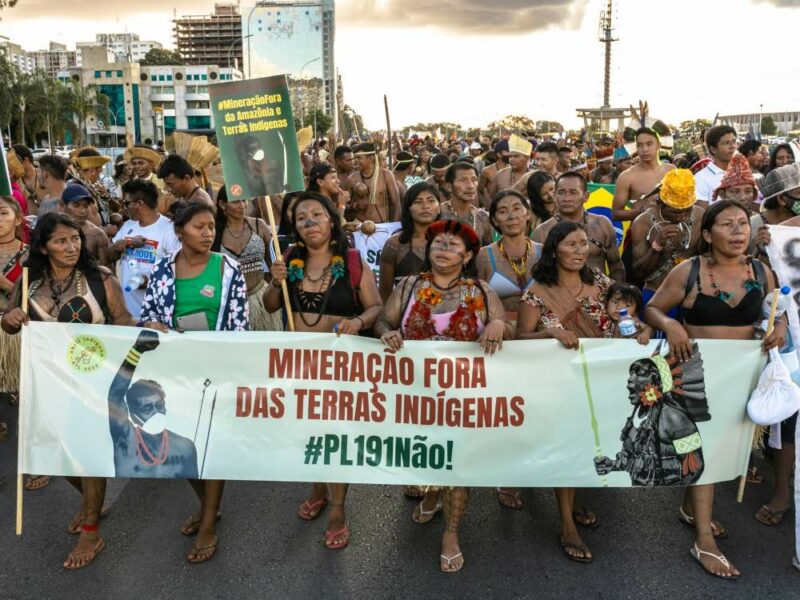Every April in the heart of New York City, the United Nations Permanent Forum on Indigenous Issues (UNPFII) convenes. Indigenous peoples from around the world gather at this pivotal event to spotlight the state of Indigenous rights in their territories and to engage in discussions about advancing their collective demands.
Amazon Watch accompanies Indigenous peoples from the Amazon Basin to collaboratively create opportunities for reflection and dialogue on advancing Indigenous rights.
At this year’s 24th session of the UNPFII, a delegation of Amazonian Indigenous leaders delivered a clear and urgent message: organized crime and illegal economies are devastating the Amazon and threatening the survival of Indigenous peoples.
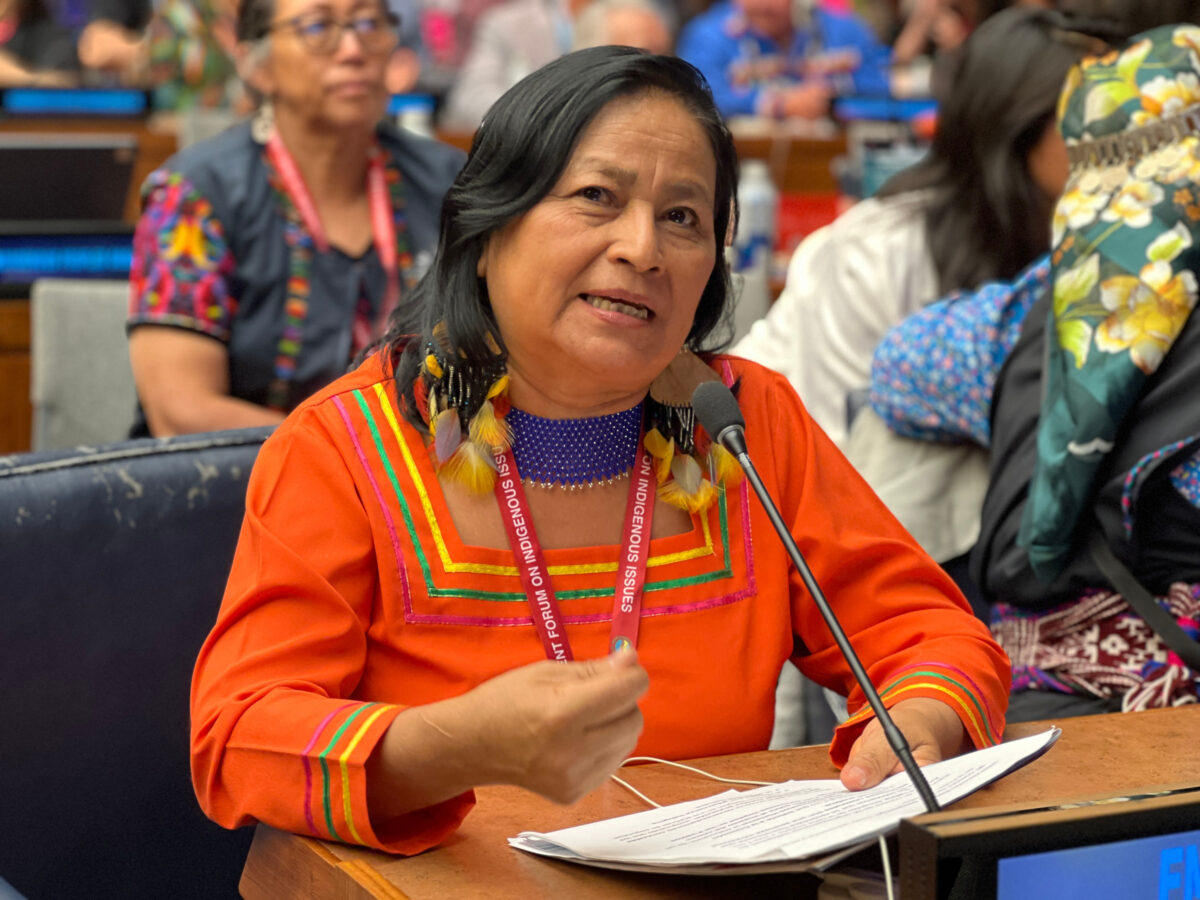
Nely Shiguango, Kichwa leader and Head of Education, Culture, and Women’s Affairs at the Federation of Indigenous Organizations of Napo (FOIN) in the Ecuadorian Amazon, brought the voice of 34 Indigenous organizations from across Latin America to the UN. She delivered a group letter demanding concrete responses to the expansion of drug trafficking, illegal mining, human trafficking, and other illicit activities.
“These criminal economies contaminate our rivers with mercury, destroy our food sources, deteriorate our health and livelihoods, and spread fear in our communities: they kill leaders, recruit our youth, and displace us from our territories,” Shiguango stated during her remarks on the floor. “How can we talk about implementing the UN Declaration on the Rights of Indigenous Peoples if we don’t acknowledge that we are being killed?”
Shiguango called on the Forum to urge the Inter-American Commission on Human Rights (IACHR) to produce a specialized report on the impacts of organized crime on Indigenous peoples, including concrete recommendations to strengthen Indigenous territorial governance, intercultural health, and community security, and to uphold traditional ways of life.
Her testimony is grounded in the alarming reality documented in the recent report Gold, Gangs, and Governance: Indigenous Communities Under the Grip of Organized Crime, which highlights the sharp rise of illegal mining operations in Napo province. In just one year, illegal gold mining has expanded by over 500 hectares – encroaching on protected areas like the Sumaco Napo-Galeras National Park. The report also details how mercury pollution is contaminating the Napo River, with devastating consequences for the health of Kichwa communities and the biodiversity of the region.
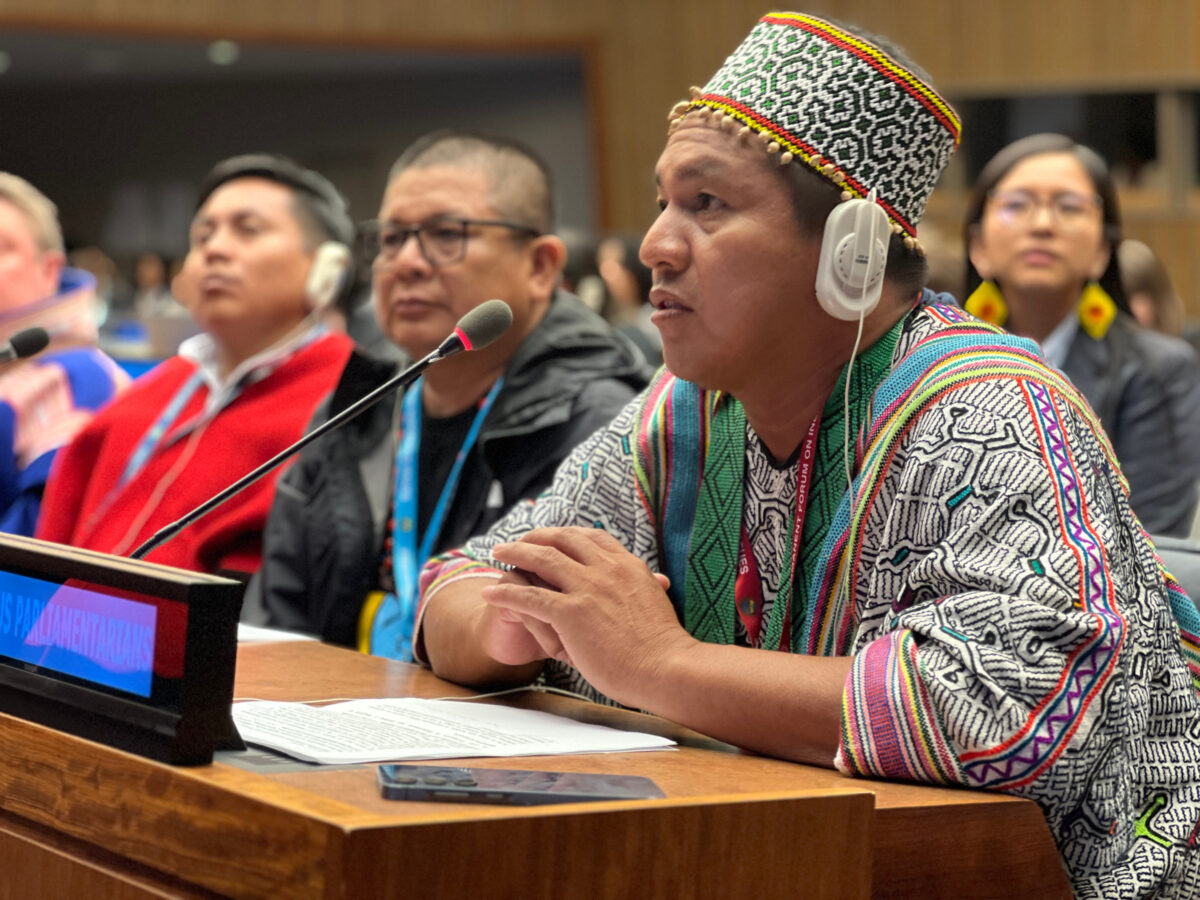
From the Peruvian Amazon, Miguel Guimaraes, Shipibo-Konibo leader and Vice President of AIDESEP, reinforced this call with a powerful statement from the territories most affected:
“The Permanent Forum must formally recognize that organized crime and illegal economies such as drug trafficking and illegal mining are an existential threat to our peoples. We must be included in drafting the international protocol on environmental crimes, and protection mechanisms for Indigenous defenders must be created, along with funding for Indigenous-led economic alternatives. If these measures are not taken, ongoing military and police interventions in our territories will continue to put our lives at risk. Without dignified livelihoods, we cannot safeguard our culture or our territories.”
His remarks echo recent events in Ucayali, where armed assailants shot Indigenous leader José Hugo Briones Taricuarima three times while he worked on his farm in the community of Flor de Ucayali – Miguel´s own community. The attack, driven by the expansion of illegal coca plantations and aggressive state-led eradication efforts, has sparked alarm across the region. Indigenous organizations and allies, including FECONAU and IDL, publicly condemned the violence and demanded immediate protection and justice. This incident highlights the dangerous conditions Indigenous defenders face and reinforces Miguel’s urgent call for international mechanisms that center Indigenous voices and guarantee their safety.
Throughout the week, the delegation held high-level meetings with representatives of the Permanent Missions of Mexico and Denmark, as well as with Darío Mejía, a current member of the U.N. Permanent Forum, who expressed support for the proposals and emphasized the importance of sustained Indigenous participation in international spaces.
Key recommendations presented to the Forum included:
- Formally recognizing organized crime and illegal economies as an existential threat to Indigenous peoples.
- Ensuring permanent Indigenous representation in the U.N. Office on Drugs and Crime (UNODC) and the U.N. Convention against Transnational Organized Crime (UNTOC) processes.
- Including Indigenous representatives in the drafting of the international protocol on environmental crimes.
- Establishing effective protection measures and funding for Indigenous defenders and Indigenous-led economic initiatives.
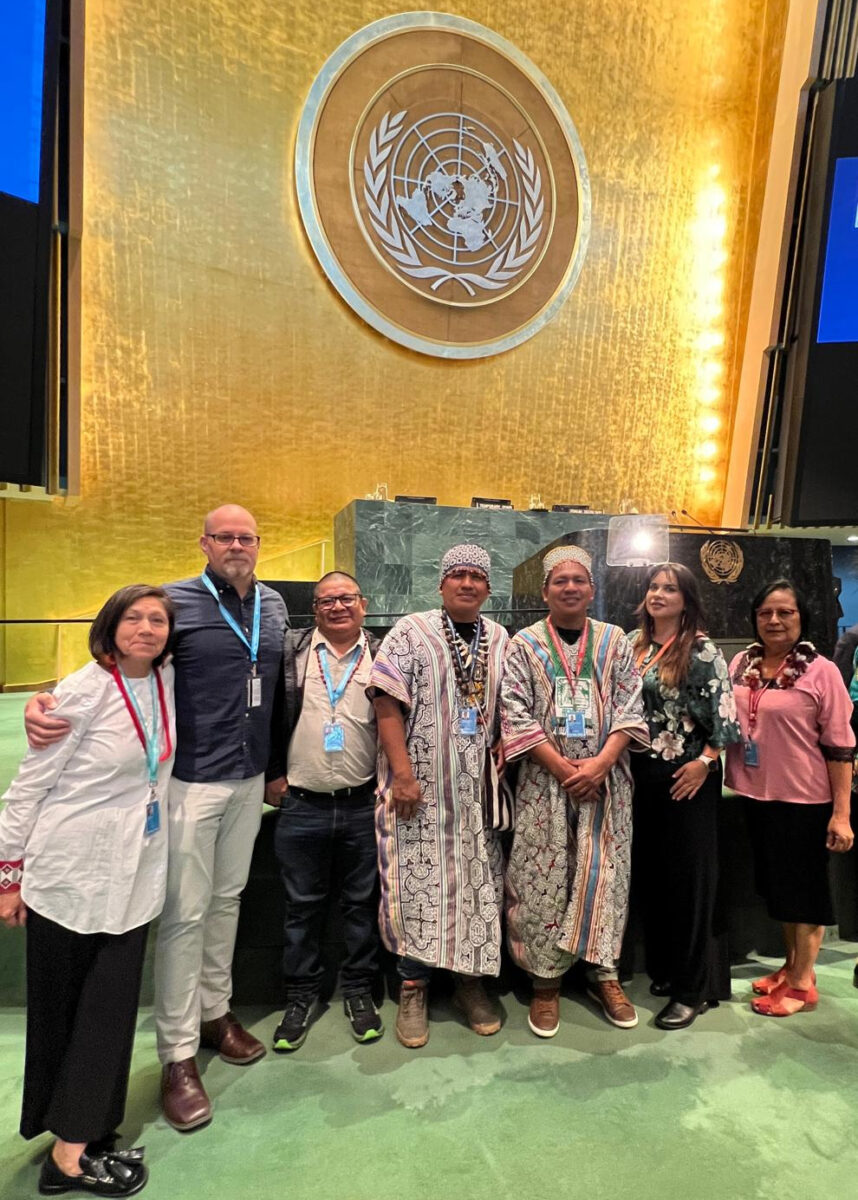
The delegation also shared the latest findings from the Amazon Underworld research, which reveals that criminal networks have infiltrated over 62% of Indigenous territories in the Amazon. The report documents how these illegal economies are violating human rights, weakening community cohesion, and destroying vital ecosystems.
This delegation’s participation at the U.N. was made possible with the support of allied organizations such as Amazon Watch. We are proud to stand alongside Indigenous leaders at critical international forums like the UNPFII, ensuring their voices are heard and their rights defended.
Our ongoing work to amplify Indigenous leadership, expose systemic threats, and advocate for justice is exemplified through this collaboration. As criminal networks and extractive industries intensify their assault on the Amazon, Amazon Watch remains steadfast in our commitment to support Indigenous-led resistance and advance global accountability.


